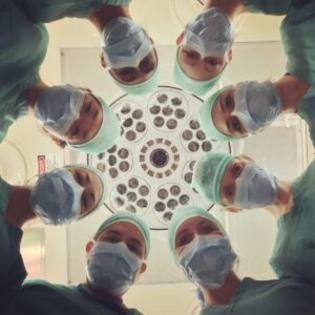New Data About Cancer And Cannabis
Published in Cannabis Daily
While there is a need for more research, the data has good news.
The American Medical Association and the American College of Physicians along with the federal agencies Health and Human Services (HHS) and the Food and Drug Administration (FDA) have all spoke up about the need for additional research to unlock medical benefits of cannabis. The acknowledge it can help, but need more information, including more understand about dosage. Now, a study reveals more data about cancer and cannabis which only reenforces their call to action.
RELATED: Science Says Medical Marijuana Improves Quality Of Life
While cannabis is not a treatment for cancer, studies support marijuana-derived cannabinoids. TCH and CBD can help relieve symptoms and ease the side effects of cancer, including chemotherapy. More research can be done on treatment, but how do patients feel about using medical marijuana? The University of California San Diego and VA Health Care researchers partners for the one-year study. Team conducted a comprehensive survey of nearly 1,000 adult cancer patients at various stages of cancer treatment. What they discovered wasn’t a common sense surprise.
The lead researchers Corinne McDaniels-Davidson’s published in the Journal of the National Cancer Institute. They explored the decision-making process, perceived benefits, and risks of cannabis use to address symptoms in adults with cancer.
“There’s a vacuum in the world of cancer care. Many oncologists don’t talk to their patients about cannabis or refer them to a pain management specialist instead,” said McDaniels-Davidson, who is the associate director at the SDSU School of Public Health.
“Our data shows about a third of the patients surveyed used cannabis after their diagnosis, but only a few of those patients said they had told their oncologist,” said McDaniels-Davidson.
Cannabis has been used as medicine for thousands of years. The archeological site in the Oki Islands near Japan contained cannabis achenes from about 8000 BC, but it developed a bad name in the early 20th century. But the understanding it works is still strong. Survivors who perceived cannabis had any benefits were five times more likely to use it. Those who perceived there were any risks were nearly 60% less likely to have used it post-diagnosis.
According to the study, cancer survivors diagnosed with stage 3 or 4 were also more likely to use cannabis. Among those who used cannabis, 19% said they believed the misconception that it could treat or cure cancer. Cannabis can not cure cancer, a fact which needs to be made clear, but it increasing can help treat the disease. This study gives medical professional another tool to talk with patients.
The Fresh Toast is a daily lifestyle platform with a side of cannabis. For more information, visit www.thefreshtoast.com.
























Comments